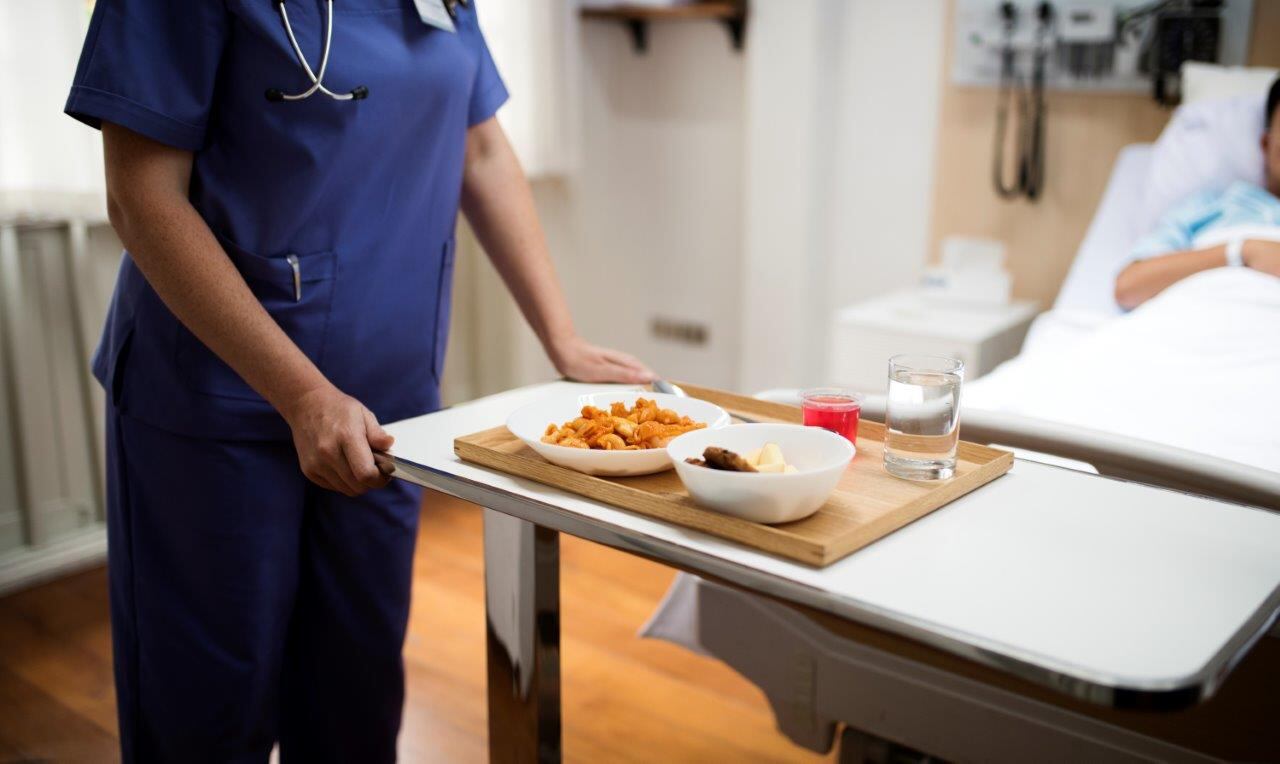The review follows the death of six people from listeria, linked to eating pre-packed sandwiches and salads in NHS hospitals.
Led by Hospital Caterers Association national chair Philip Shelley, the review aims to improve public confidence in hospital food by setting out clear ambitions for delivering high-quality food to patients and the public.
Drawing on the Government’s current nutrition advice, as outlined in Public Health England’s (PHE’s) Eatwell Guide, it will consider how food can help aid faster recovery, taking into account the unique needs of vulnerable groups.
The review will also look at new systems to monitor food safety and quality more transparently, and how to source more food services locally while reducing reliance on frozen or packaged good.
It will also consider how to increase the number of hospitals with their own kitchens and chefs.
140 million meals
Every year, the NHS serves more than 140 million meals to patients across the country. The Government recognised that the quality and nutritional value of these meals could vary substantially.
Following the review, new national standards for healthcare food for patients, staff and visitors will be developed by NHS England, NHS Improvement and PHE.
Shelley is to meet with catering managers at trusts across the country, looking at best practice from those leading the way in food quality and innovation.
Restaurateur and celebrity chef Prue Leith will act as an adviser to the review, drawing on her experience working in catering, high-quality restaurants and as a former chair of the School Food Trust.
Leith has previously spoken out on the need for hospitals to provide healthy options that aid recovery and for meals to be tailored to the individual needs of the patient.
Johnson’s NHS pledge
Prime Minister Boris Johnson said that since entering Downing Street, his focus was to “make sure our world-class NHS has everything it needs to continue providing the very best frontline care”.
“Guaranteeing hospitals serve nutritional, tasty and fresh meals will not only aid patient recovery, but also fuel staff and visitors as they care for loved ones and the vulnerable,” Johnson said.
Health and social care secretary Matt Hancock said: “We all know how important the food we eat is to our health. We have a duty to ensure this same level of attention is given to the food served to patients in hospital, or our brilliant NHS staff working tirelessly for patients – and indeed to visitors.
“I have seen first-hand how using fresh, locally-sourced ingredients and cooking from scratch have improved the quality of their meals and I want to help more hospitals follow suit by sharing what works best across the country.”
However, Labour’s shadow healthy secretary Jonathan Ashworth said it was “incompetence” that the review had only just been launched, after it had been promised by Hancock months ago.
Ashworth said: “Years of austerity mean that some hospitals are only spending close to £3 per patient a day on meals for patients – it’s an utter disgrace.
“Labour will invest in hospital catering, enforce mandatory minimum standards and bring catering back in-house.”




